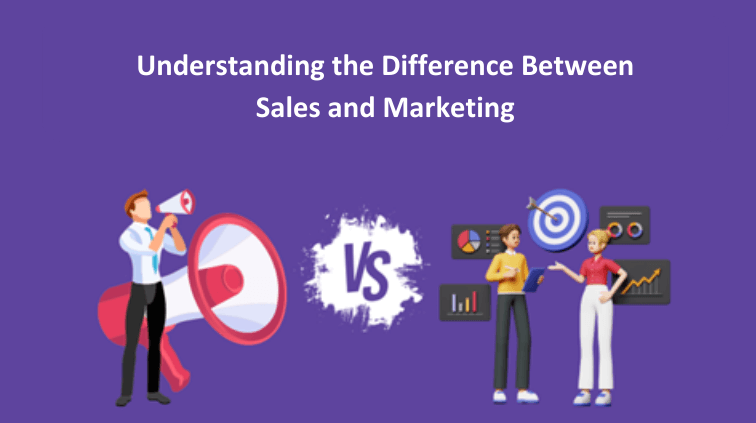Table of Contents
ToggleIn business, the terms “Sales” and “marketing” are often used interchangeably or confused with each other. However, these two functions are distinct yet closely related. To excel in both, it’s essential to understand their differences and how they complement each other. In this blog, we will explore the definitions of sales and marketing, highlighting the unique roles they play in driving business success. Whether you’re a seasoned professional or considering a Sales Certification Course, grasping these distinctions is essential for a successful career in sales and marketing.
What is Sales?
Customer interaction leading to the purchase and payment for a product or service is what we call sales. It’s a business process that aims to close potential clients into paying customers. Sales professionals, also known as salespeople or sales representatives, are accountable for converting prospects into paying customers at the very end of the customer experience.
What is Marketing?
On the other side, marketing entails generating interest in and demand for a product or service. Attracting, retaining, and informing new clients are all part of it. The marketing team’s job is to find potential customers and keep them interested until the sales team is ready to approach them.
Key Differences Between Sales and Marketing
Sales and marketing are two separate departments with the same overarching objective. Recognizing these distinctions is critical for maximizing their effect on the company:
Focus on Interaction
- Individual interactions with consumers are the primary emphasis of sales.
- The goal of marketing is to disperse a message to as many people as possible.
Timeline
- The primary focus of sales is to get the ultimate purchase from the consumer.
- From initial interest to follow-up with potential customers, marketing is always at work.
Communication
- Direct and one-on-one interaction between seller and buyer is essential in sales.
- In order to expand their customer base, businesses often resort to mass media.
Goals
- In sales, hitting short-term revenue goals is a priority.
- Awareness of a brand, trust in the brand, and potential customers are all goals of marketing.
Activities
- Product demos, bargaining, and deal closing are all part of sales.
- Advertising, content production, and lead generation are all included in marketing.
Impact on the Customer’s Path
- When a company’s goal is to turn leads into paying customers, sales is the last point of contact.
- Marketing efforts shape the customer’s path from first exposure to final purchase.
How Sales and Marketing Complement Each Other
Sales and marketing are not at odds with one another; rather, they complement one another in order to accomplish organizational goals. This working partnership is often known as “marketing.” See how they round each other out below:
- Leads are created by marketing for sales to follow up on. Successful advertising generates leads that the sales department may pursue.
- Prospects are kept interested by marketing until they are ready to buy. This nurturing procedure increases the prospects’ likelihood of buying from the sales team.
- Feedback from sales on the quality of leads and the efficacy of marketing materials is invaluable to the marketing department. With this data, marketing is able to fine-tune its approaches.
- The objectives, audiences, and messages of both roles must be consistent. A concerted effort guarantees a trouble-free experience for the client.
- Efforts in both sales and marketing may retain customers. Sales can keep in touch with consumers after they’ve made a purchase, and marketing may keep their interest using loyalty programs.
Conclusion
Sales and marketing are different but complementary roles inside each business. While sales are concerned with closing deals via one-on-one contacts, marketing works to expand the business’s reach and prepare qualified leads for contact with sales representatives. To be successful at both, you need to know what each does and how it contributes to the overall goal of expanding your company. Understanding the distinction between sales and marketing is crucial for success in the business world, and a sales certification course is a great way to get started in any of these fields.

